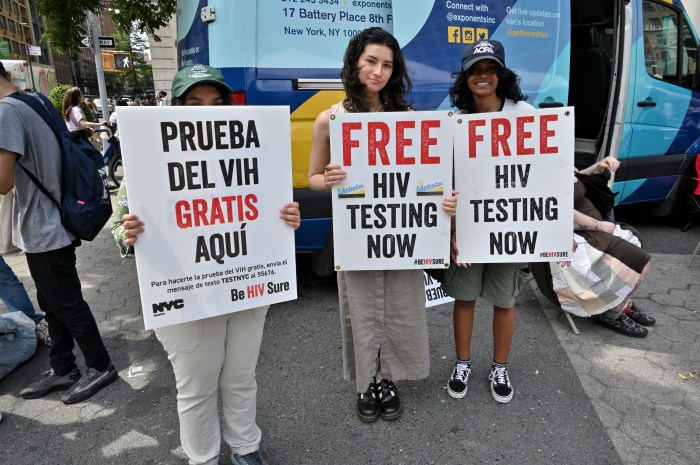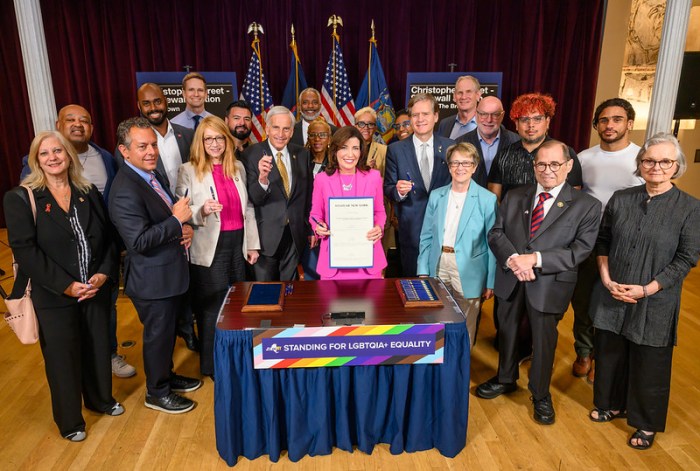The state-by-state evisceration of transgender rights in the healthcare realm has jeopardized or restricted gender-affirming care for more than 144,000 young people across the United States, according to researchers at the Williams Institute at UCLA School of Law.
The new report, which includes data from up until March of this year, underscores the wide impact of transphobic policies and proposals at a time when State Legislatures have become the key vehicle through which conservatives have advanced their anti-trans agenda. The laws are inconsistent with the positions of the American Medical Association, the American Academy of Pediatrics, and the Endocrine Society, which have all endorsed gender-affirming medical care for youth.
In total, 146,300 trans youth have lost or are at risk of losing access to gender-affirming care, while roughly 78,000 trans youth live in 11 states that have already enacted bans on gender-affirming care, according to the Williams Institute. Another 18,7000 trans youth live in states that have moved to enact bans this year in Georgia, Iowa, Mississippi, South Dakota, Tennessee, and Utah. Prior bans or restrictions implemented through executive order have impacted 59,200 transgender youth in Alabama, Arizona, Arkansas, Florida, and Texas.
There are 68,400 trans youth across 19 states who are at risk of losing care due to proposed legislation that could eventually pass, according to the Williams Institute.
“An unprecedented number of bills have been filed this year to restrict access to gender-affirming care for transgender youth,” Elana Redfield, an author of the study and the federal policy director at the Williams Institute, said in a written statement. “States are exploring every avenue to prevent access to care, such as encouraging private lawsuits against providers, extending the time to bring them, and prohibiting anything that could be seen as ‘aiding or abetting’ access to these treatments.”
While some red states are moving in the wrong direction, other states have made efforts to serve as sanctuaries for trans Americans under siege elsewhere. States like California and New Jersey have already emerged as sanctuary states for trans youth, and Minnesota’s lower house recently passed a bill barring state authorities from taking a child away from parents or guardians due to another state’s laws. Under the bill, the state would also not abide by out-of-state arrest warrants or subpoenas pertaining to such laws. The upper house is expected to pass it and the governor, Tim Waltz, has voiced support for it. Similarly, there is a push to make New York a sanctuary state for trans youth.
In addition to youth, trans young adults are also facing threats. Texas and South Carolina have proposals to ban gender-affirming care up to age 26, while bills restricting gender-affirming care up to age 21 are under consideration in Kansas, Oklahoma, and again in South Carolina.
Six states — with Texas leading the way — have introduced legislation restricting gender-affirming care for trans adults who are on state insurance programs, including Medicaid, and Texas in particular would ban the use of state funds to pay for gender reassignment procedures regardless of age, according to the Williams Institute.
“Research shows that gender-affirming care improves mental health and overall well-being for transgender people, including youth,” said another one of the study’s authors, Kerith J. Conron, who is the Blachford-Cooper distinguished scholar and research director at the Williams Institute. “Bans on access to medically appropriate health care add to the existing burden of stress experienced by transgender youth and their families.”



































